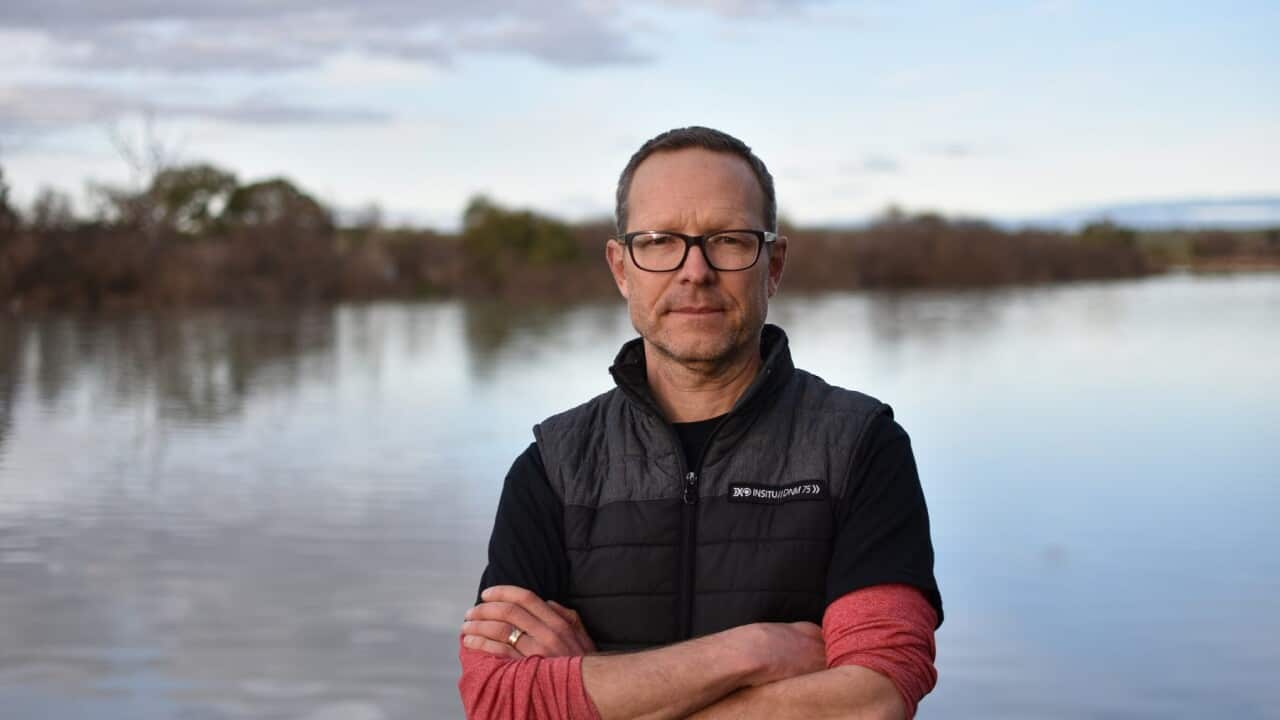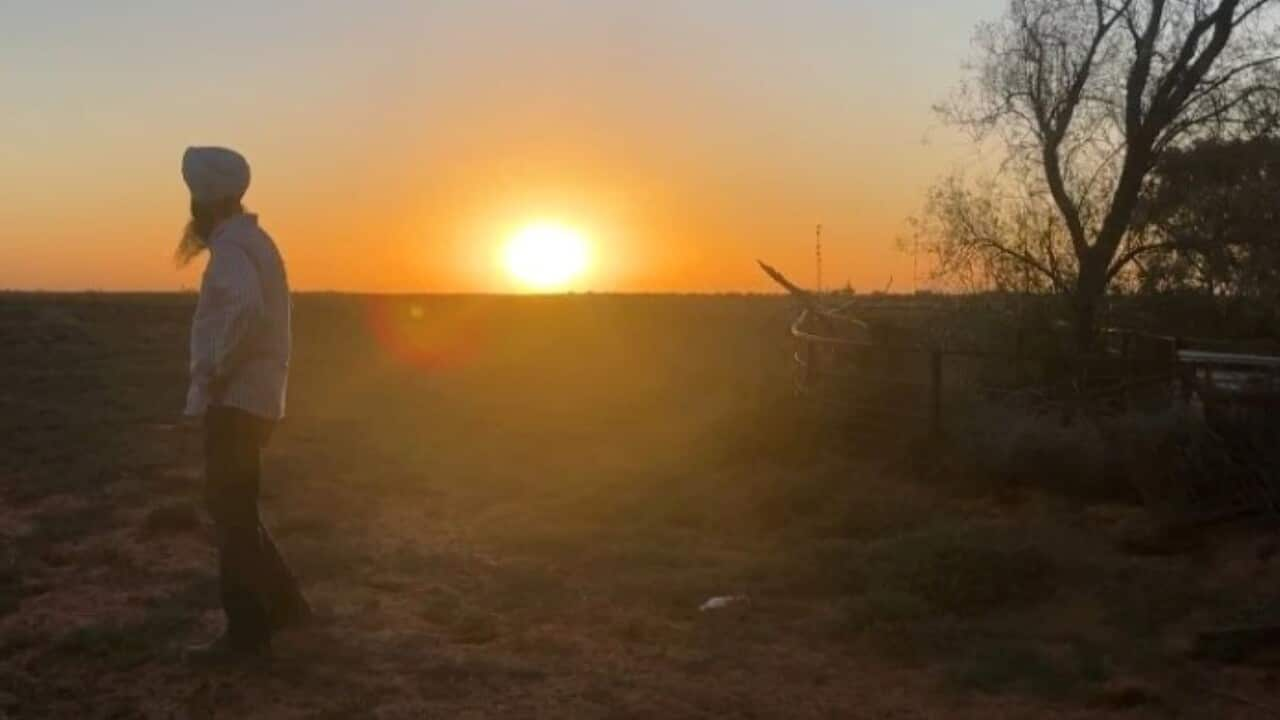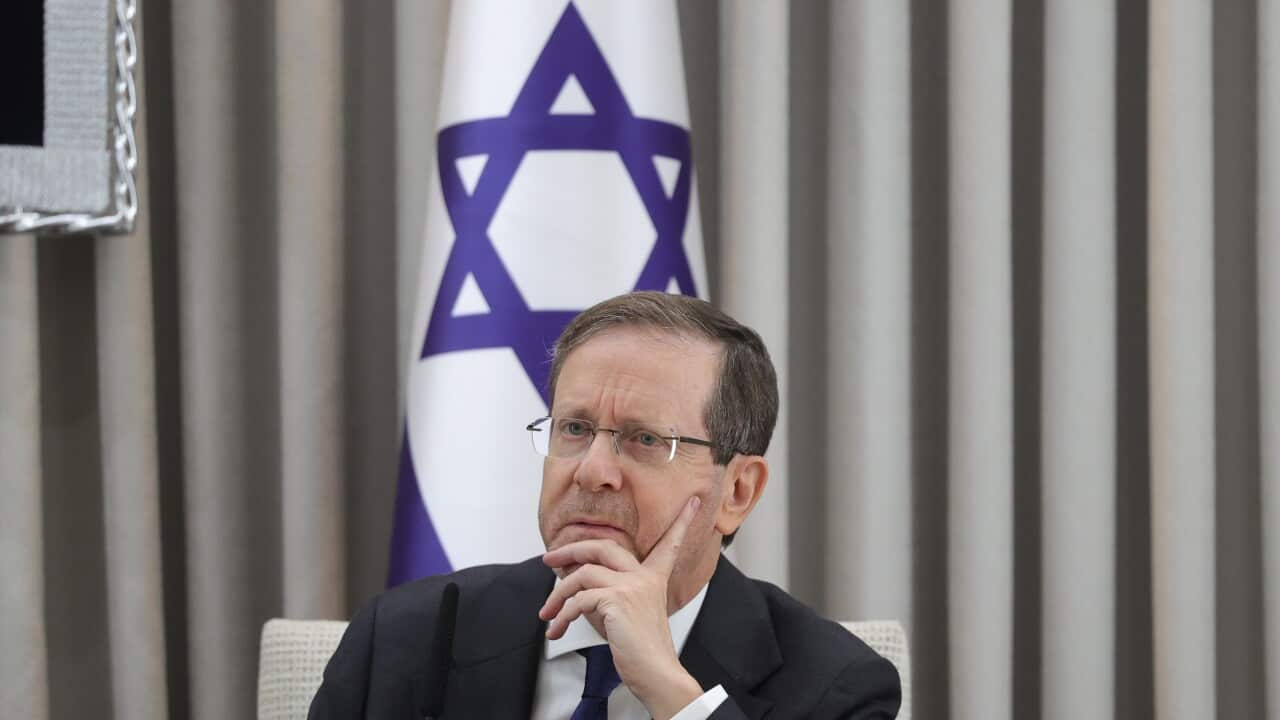Listen to Australian and world news, and follow trending topics with SBS News Podcasts.
TRANSCRIPT:
For some time now, scientists have feared the tiny Pacific Island nation of Tuvalu [[tooh-VAH-looh]] may become uninhabitable within 80 years due to climate change.
By 2050, NASA scientists project daily tides will submerge half the main atoll of Funafuti, home to 60 per cent of Tuvalu's residents, where villagers cling to a strip of land as narrow as 20 metres.
‘Alopi Latukefu is the director of the Global Centre for Social Justice and Advocacy Leadership.
He says the impacts are already being felt right now on Tuvalu's nine atolls scattered across the Pacific between Australia and Hawaii.
"We are seeing these communities faced with real challenges in the community from the perspective of not just inundation from the sea level rise, but also in terms of food security, water security in these communities, the impact from regular events, whether they be king tides or more serious events that are creating a very difficult situation."
‘Alopi Latukefu says it's important to understand not everyone wants to leave Tuvalu.
"The decision to leave is a very big one and a very important one, and one which is tied to a range of other factors as well to support their families, to provide a pathway for a future, to have access to education, to have access to things that are part of the opportunity that Australia represents."
But some may feel they have little choice.
Two weeks ago, the Australian government opened an inaugural ballot that allows Tuvaluans to register their interest in a visa program created under the terms of a treaty known as the Falepili Union - which takes its name from the Tuvaluan term for neighbours who live in close houses.
Professor Stephen Howes is the Director of the Development Policy Centre at the Australian National University, and says those selected for the visa will have significant rights to live, work and study in Australia.
"It is a very generous visa. So most migrants to Australia have to endure a waiting period of several years before they're eligible for benefits. But that's not the case for migrants under this visa. I mean, they don't have access to Centrelink, so they can't come to Australia and just go straight onto unemployment benefits. But they do get access to Medicare, they get access to other benefits such as the family benefits, support to study."
The interest in the visa is significant.
Out of Tuvalu's population of roughly 10,000 people, almost a third of them have begun the process of applying.
That's more than 3,000 people who have put their names into the lottery ballot - though only 280 people will be selected at random per year.
Professor Jane McAdam is Scientia Professor of Law and Founding Director of the Kaldor Centre for International Refugee Law at U-N-S-W Sydney.
She says it's the world's first bilateral mobility framework that references climate change.
"And I should note that the visa itself doesn't mention the words climate change at all, but the treaty pursuant to which it was created is framed very much around the existential threat that climate change poses in our region. And it was an element that the government of Tuvalu specifically requested from Australia."
Professor Stephen Howes says while the visa will benefit those selected in the lottery, Australia has also gained some strategic advantages through the Falepili Union.
"So what Australia got out of the agreements was a sort of veto power over Tuvalu's security arrangements or specifically security partnerships. So under the agreement, Tuvalu has to seek Australia's permission before entering into an agreement with the third country in relation to security, and that's clearly aimed at China."
This broader geopolitical picture is inevitably inflected by the global politics of climate change - as the Pacific pushes Australia to reduce emissions and exports of fossil fuels.
'Alopi Latukefu has welcomed the new Tuvalu visa but says Australia needs to take stronger action to address climate change too.
"It's not a climate visa, let's be very clear about this. It's under the Falepili treaty with a treaty of friendship with Tuvalu. It's often referred to as a climate visa, but it is one that is not framed in that context. And that's partly because of Australia's need to not frame things in that context because of our own interests."
He says the fact Australia has just signed off on a 40-year extension to the North West Shelf gas project points to a fundamental contradiction in the way the visa is being positioned.
"How can we give a visa for something that we're causing the problem with? Okay, it's much easier to say it's a visa for friendship."
Mr Latukefu also says it's important that Tuvaluans are supported to maintain their connection to their lands and culture.
For many this will mean moving between countries, rather than relocating to live in Australia permanently.
"The reality is, very much as it's been the experience of many other diaspora communities from the Pacific, along with myself - I'm of Tongan descent and I go back to Tonga and we have links back to Tonga and a part of the Kāinga, the family with important links back to the land of my forefathers and the culture of my forefathers. And that's the same issue that Tuvaluans will have in future, that they won't leave necessarily forever."
Professor McAdam agrees ongoing mobility will be important feature of the new visa type.
"And that kind of parallels what we've seen in the labour mobility area where people often want to go between different countries. Obviously that's expensive. It's not going to be an easy option for people, but it does mean that they can go home, see family, see communities maintain land back at home. But it might also mean people can move here for educational opportunities for their children, take some of those skills back to Tuvalu, so it's not a fair accompli that we're going to suddenly see or over time see the whole population moving. What it does provide though is a safety net."
Advocates and observers are also watching closely to see what support will be offered to help people transition to life in Australia.
Professor McAdam says a Tuvaluan cultural liaison officer has been suggested as one way to help.
"I think the proof will be in the pudding in terms of what actually happens when the first, second, third groups of people arrive, how well supported they feel once they're here, how much they are facilitated to create their own cultural facilities and community supports here. But also learning from New Zealand experiences ensuring that people don't become too reliant on what is quite a small diaspora community and that sufficient government supports are put in place."













